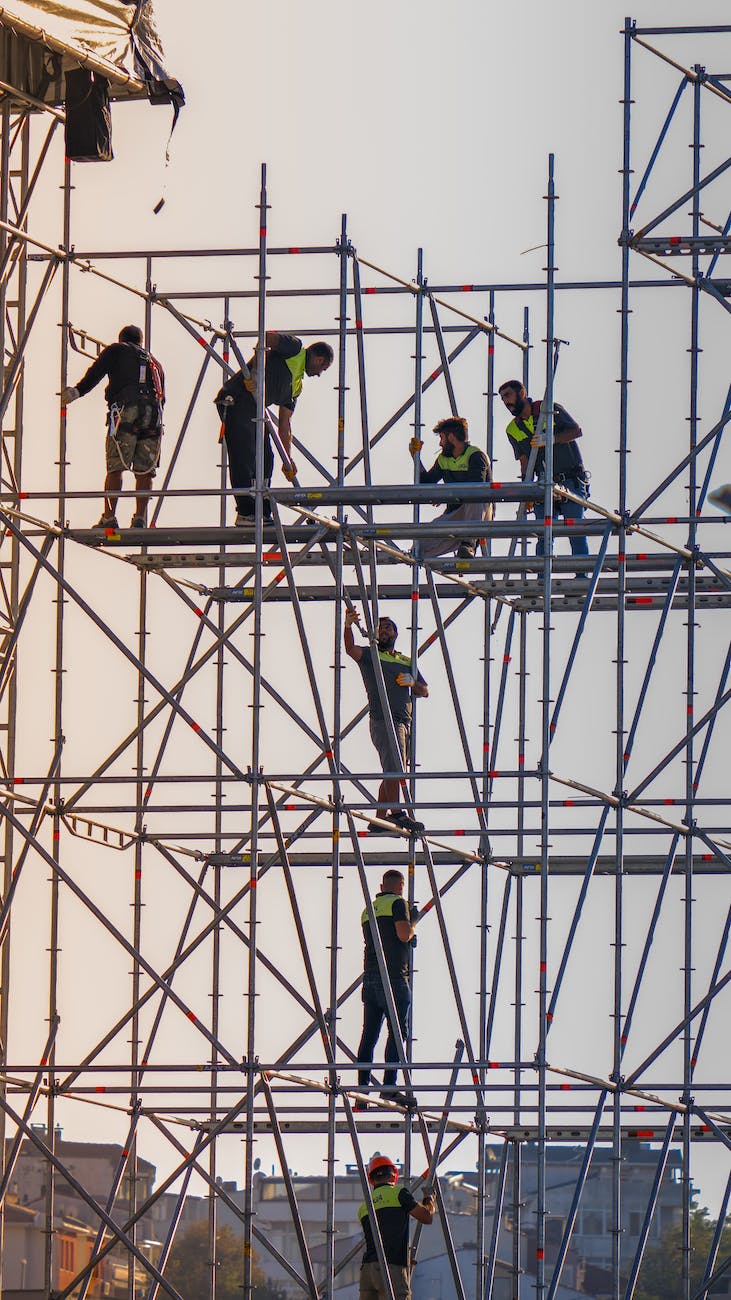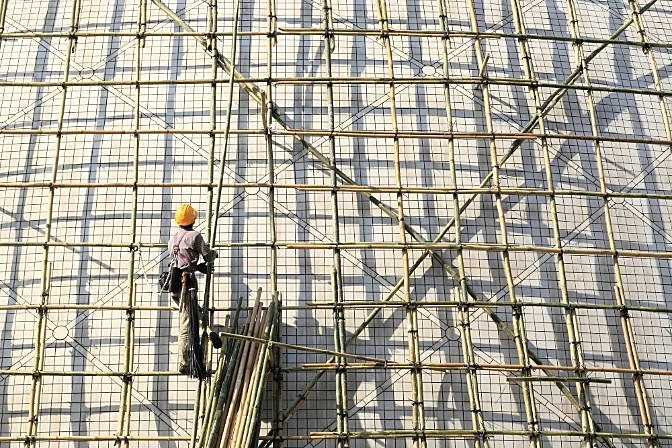Dependable Domestic Scaffolding for Homeowners in Need of Safe Renovations
Dependable Domestic Scaffolding for Homeowners in Need of Safe Renovations
Blog Article
Checking Out the Different Kinds Of Scaffolding Utilized in Building Projects
The construction market depends greatly on numerous kinds of scaffolding to satisfy details project demands, each offering distinctive benefits and applications. Conventional framework scaffolding gives a tough structure for basic tasks, while suspended scaffolding is important for job on high-rise frameworks.

Standard Structure Scaffolding
Traditional structure scaffolding is among one of the most widely used techniques in the building and construction industry due to its effectiveness and convenience. This system includes vertical and horizontal frameworks that are put together to develop a stable system for products and employees. The major elements include vertical messages, straight ledgers, and diagonal braces, which with each other offer a solid structure that can support significant tons.
Among the crucial advantages of typical framework scaffolding is its adaptability to numerous building tasks, varying from property structures to large business structures. The modular layout enables easy setting up and disassembly, making it efficient for both long-lasting and temporary projects. In addition, the system can be personalized in height and size, fitting various building styles and website problems.
Security is vital in scaffolding applications, and standard structure systems are geared up with guardrails and toe boards to avoid drops and ensure worker protection. Additionally, normal examinations and adherence to security laws are essential in keeping the stability of the scaffold. In general, traditional structure scaffolding continues to be a fundamental selection in the building and construction market, offering a dependable platform for labor and improving total task effectiveness

Suspended Scaffolding
Put on hold scaffolding supplies a distinct remedy for building projects that require access to elevated surface areas, particularly in situations where typical framework scaffolding may be impractical. This sort of scaffolding is commonly put on hold from the roof covering or top levels of a framework, making use of a system of ropes, pulley-blocks, and systems to produce a functioning area that can be adapted to various heights.
One of the primary advantages of put on hold scaffolding is its versatility. It can be conveniently rearranged or lowered to suit adjustments in construction demands, making it ideal for tasks such as home window installment, façade work, and upkeep on skyscrapers. Additionally, the minimal impact of put on hold scaffolding allows for far better use of ground space in metropolitan settings, where room is frequently restricted.
Safety and security is a crucial consideration in making use of put on hold scaffolding. Appropriate rigging and securing systems have to be used to guarantee security and prevent mishaps. Operators needs to additionally be learnt the secure use of this devices. In general, suspended scaffolding provides a efficient and efficient remedy for accessing hard-to-reach areas in numerous construction situations, enhancing both productivity and safety and security on site.
System Scaffolding
System scaffolding, typically considered as a modern-day option in the scaffolding sector, contains pre-engineered parts that can be promptly assembled and adjusted for different construction jobs. Scaffolding. This kind of scaffolding is identified by its modular layout, which allows for flexibility and effectiveness on task websites, fitting various heights and structural demands
Normally made from high-strength steel or light weight aluminum, system scaffolding provides enhanced sturdiness and security. The parts consist of vertical posts, straight journals, and angled dental braces, which adjoin securely, ensuring a durable framework. The design usually includes standard installations, simplifying assembly and disassembly procedures, consequently reducing labor time and costs.

Rolling Scaffolding
Rolling scaffolding is a flexible option to conventional fixed scaffolding, designed for mobility and simplicity of usage on construction sites. This kind of scaffolding is composed of a system supported by frameworks with wheels, allowing employees to quickly move it as needed. The mobility attribute dramatically improves efficiency, as it reduces downtime linked with setting up and dismantling taken care of scaffolding.
Typically created from lightweight materials such as light weight aluminum or steel, rolling scaffolding supplies a strong yet portable remedy for jobs calling for regular repositioning - Scaffolding. It is specifically advantageous in jobs such as paint, drywall installation, and electrical job, where access to various elevations and places is essential
Safety is critical in rolling scaffolding layout, with features such as securing wheels to avoid unintended movement when in use, and guardrails to secure workers from drops. Furthermore, numerous models are adjustable in height, suiting various project requirements.
Cantilever Scaffolding

The design of cantilever scaffolding usually involves utilizing arms or Get More Information braces secured to a building or framework, allowing the system to extend outside securely. Safety and security is vital; therefore, these scaffolds should be crafted to stand up to numerous loads and environmental problems. Routine inspection and maintenance are vital to guarantee structural integrity and employee safety.
Cantilever scaffolding is preferred for its convenience and effective use room, making it scaffold netting for sale a preferred choice in metropolitan settings where room constraints are common. It assists in easier access to high altitudes, ultimately adding to the general efficiency of construction jobs. Just like all scaffolding types, appropriate training and adherence to safety standards are vital for employees using cantilever scaffolding.
Conclusion
In final thought, the diverse types of scaffolding used in construction jobs each serve distinct purposes tailored to particular website demands. Traditional frame scaffolding gives security, while put on hold scaffolding provides flexibility for elevated tasks. System scaffolding facilitates you can check here fast assembly, and rolling scaffolding improves movement for varying workplace. Cantilever scaffolding efficiently deals with obstacles in city settings. Understanding these scaffolding types is important for enhancing safety and security and performance in building, eventually adding to the effective conclusion of projects.
Typical framework scaffolding provides a strong foundation for basic jobs, while suspended scaffolding is important for work on skyscraper structures.Moving scaffolding is a functional option to standard fixed scaffolding, created for flexibility and ease of use on building sites. As with all scaffolding types, proper training and adherence to safety standards are crucial for workers utilizing cantilever scaffolding.
Conventional structure scaffolding offers security, while put on hold scaffolding supplies convenience for raised tasks. System scaffolding promotes quick setting up, and rolling scaffolding boosts movement for varying job atmospheres.
Report this page